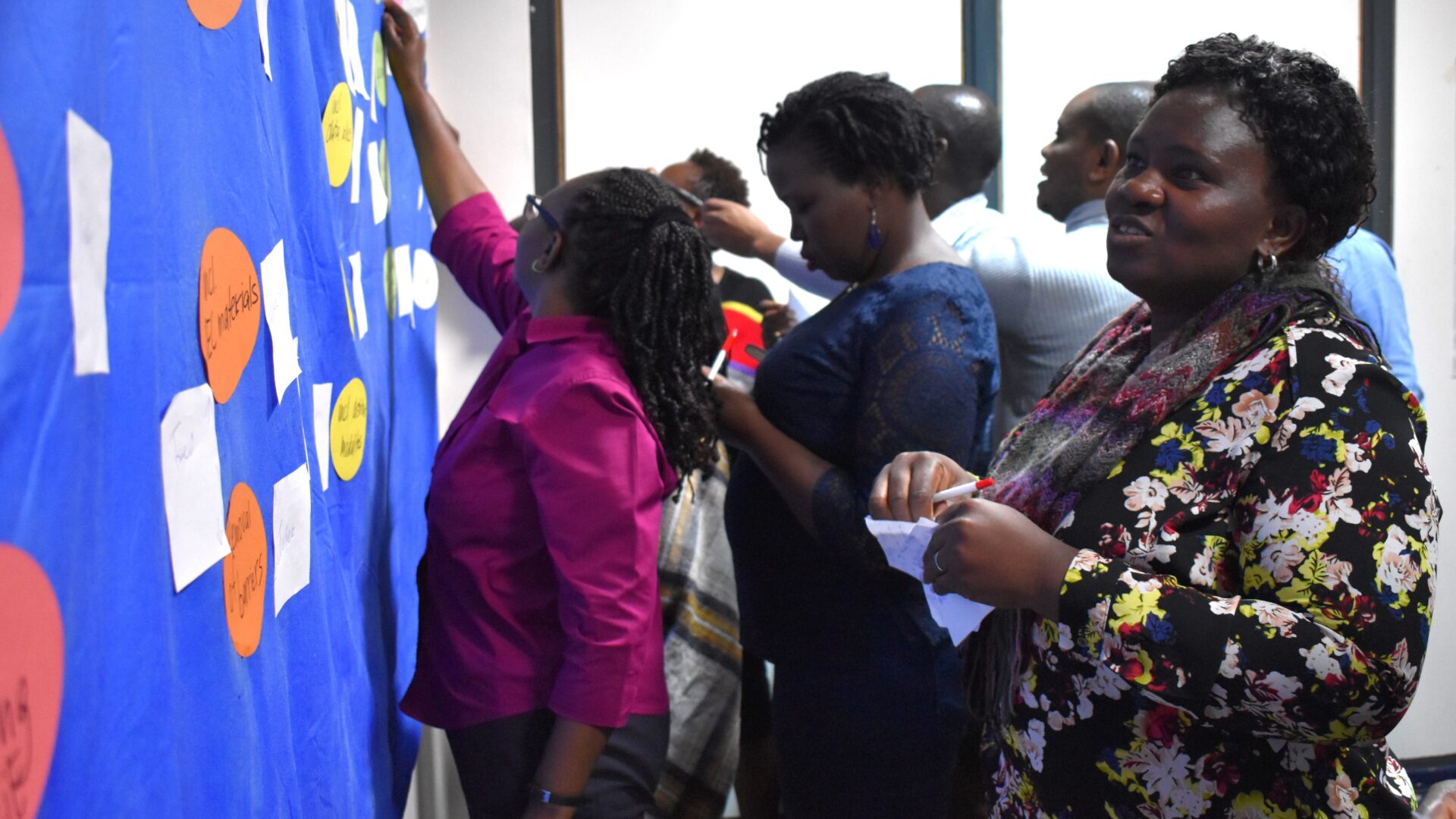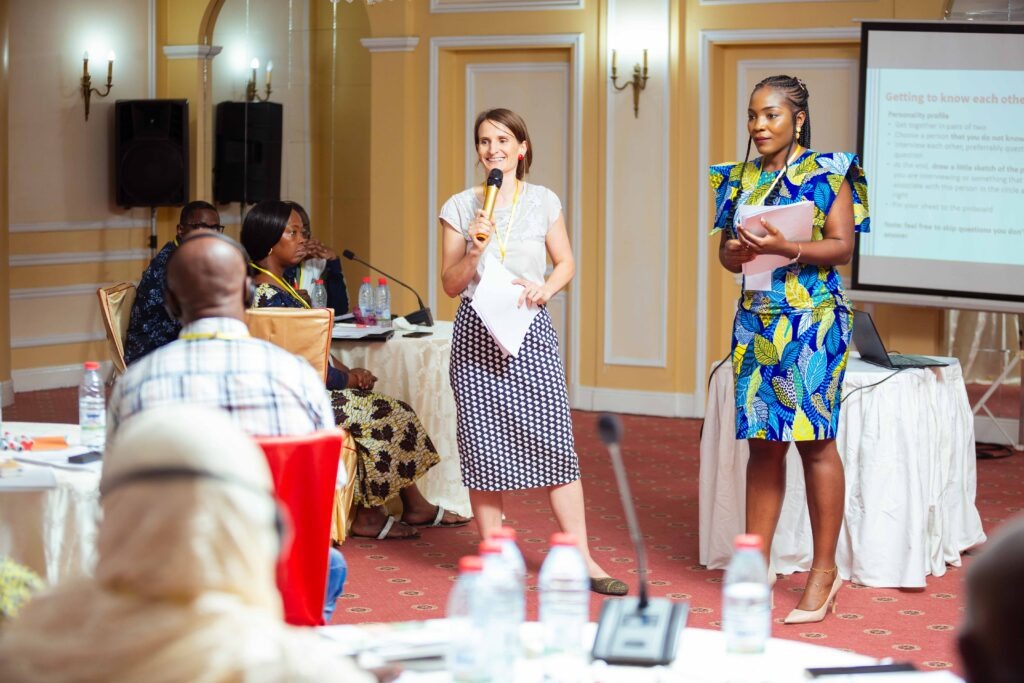Time to Reflect: Our Highlights 2023
Category
Capacity Building General IASC-Guidelines Pilot Countries Universities & Specialists Events
© Heidi Villikka / HI
As 2023 draws to a close, it is a perfect time to reflect what have we achieved so far. We are delighted to report that the second year of our Phase 3-Leave no one behind! project has been characterized as full-fledged implementation by the three project partners and six pilot country-teams.
Capacity building on inclusive humanitarian action
Building the capacity of humanitarian actors on disability-inclusion is a key component of our project. This year, we continued our training activities and provided two trainings in Germany on Disability-Inclusive Humanitarian Action and Disability-Inclusive Cash and Voucher Assistance (iCVA) as well as two regional trainings in Africa – one in Kenya and one in Cameroon. We also continued to build awareness on inclusive humanitarian action within the next generation of humanitarian workers by providing guest lectures at the Akkon Hochschule and at the Ruhr-University Bochum.
One of our project highlights has been the publication of our e-learning course “Introduction to Disability-Inclusive Humanitarian Action”! The course is available on Disaster Ready and Kaya Connect to anyone interested in learning more about disability mainstreaming in humanitarian action and key aspects of the IASC Guidelines on Inclusion of Persons with Disabilities. Early next year, the course will be also launched in French. Follow the project website to find out more.
Learning jointly and piloting technical support mechanism in East and West Africa
In our pilot countries, we strengthen the capacities of local, regional and international humanitarian organizations at the response level by providing trainings and supporting the adaptation of tools.
In East Africa, our project has piloted the Review, Adapt & Action Learning (RAAL) Laboratory methodology, which allows humanitarian actors to review, develop, learn jointly, and adapt their existing assessment or protection tools in order to be more disability inclusive. The reflections from the organized trainings and laboratory sessions are available from South Sudan, Somalia and Somaliland, and Uganda. A guidance document on the methodology of the RAAL-laboratory will be published next year.
Our country teams have also focused on promoting meaningful participation of people with disabilities by involving Organizations of Persons with Disabilities (OPDs) as co-facilitators in trainings and workshops. As part of this, two studies exploring the capacities of Organisations of Persons with Disabilities (OPDs) and disability-focused NGOs in humanitarian action in Cameroon and Niger were conducted and published.
Furthermore, we have taken initial steps to establish technical support mechanisms at the country level. Our aim is to strengthen the local expertise on disability inclusion and increase the sustainability of technical advice. To this end, kick-off workshops were held in Somalia and Somaliland, as well as in South Sudan, to launch and analyse the needs and format of a such a task force. A high level training was organised in Cameroon, following an action plan and first ideas for setting up a technical support working group were drafted.
Documentation of good and promising practices
There is a strong research component integrated in our project. This includes, among others, field research and the collection of case studies of promising practices on disability inclusion in humanitarian action. This year, we conducted two field reseach in South Sudan: one in collaboration with UNOCHA on disability inclusion in Country-based Pooled Funds (CBPF) and one in collaboration with WFP. Three field studies will be carried out next year, and the collection of case studies will be completed.
In May 2023, the first expert workshop on the status of inclusive humanitarian action research was organized in Bochum with 11 presentations and in-depth discussions with researchers and practitioners. The second workshop is planned for early 2024. Beyond that, research findings were presented at the International Humanitarian Studies Association Conference in Dhaka, Bangladesh, and project partners also contributed to the World Risk Report 2023.
We also contributed to the Humanitarian Congress Berlin 2023 by supporting accessibility measures of the Congress and by organizing a panel discussion on “South Sudan: Leave no one behind in neglected crises”.
To sum up, we have made significant progress at all levels and are in full swing to support the operationalisation of the IASC Guidelines on Inclusion in global and local humanitarian action. With this in mind, we are ready to close 2023 and would like to thank all our partners, supporters, allies, and participants for fruitful cooperation. We wish you all happy holidays and a good start into the new year!

